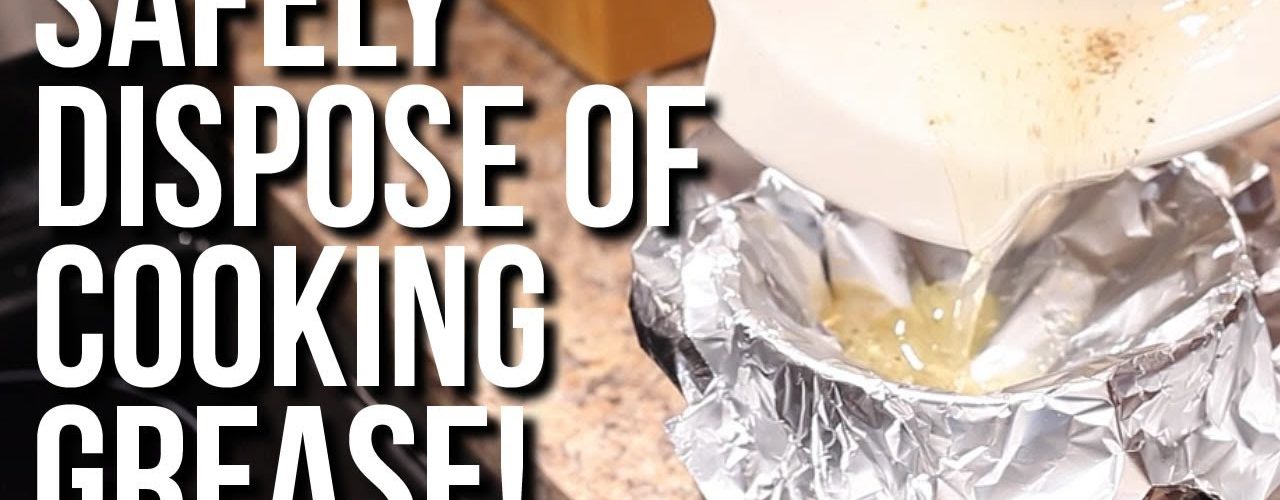Cooking with oil, be it olive, canola or sunflower, is a quick and easy way to add flavor to your dinner creations. However, one of the side effects of frying, especially deep-frying, food is that there is usually a lot of leftover oil in the pan, and this byproduct needs to be disposed of properly. The tempting thing for many cooks is to simply dump it down the drain and through the garbage disposal with the rest of the waste, but not only can this take a heavy toll on your plumbing, resulting in blockages, but it is also a hazard to the environment. One liter of oil can contaminate up to one million liters of water, forming a thin membrane that prevents oxygenation of the water. So what is a responsible cook to do? Here are a few tips that will allow you to cook with oil and dispose of it, too.
Disposing of Cooking Oil:
1) For safety, always allow oil to cool completely for disposal. Heated oil can be unpredictable when poured, so it is better to wait a while before attempting the disposal.
2) You should pour the oil into a sealable container. Plastic is better than glass, simply because it is not breakable. Again, be certain that the oil is cool before pouring it, especially into plastic.
3) If you have only a small amount of oil, you can simply dispose of the waste along with your regular garbage. Be certain that the container is sealed properly before putting it in the trash. If you have a large amount of oil, you will need to take the container to the nearby landfill. However, some areas prohibit the disposal of cooking oil in landfills. Be sure to check the regulations of your town or county before taking material to the landfill. There can also be heavy fines associated with dumping unapproved materials.
Reusing Cooking Oil:
However, another option to consider is recycling or reusing the oil. Many cooking oils can be used several times for frying, with satisfying results. If you want to reuse your cooking oil, follow the following steps.
1) As with disposing of the oil, make sure that the oil has completely cooled.
2) Strain the oil through cheesecloth and into a sealable container. This will remove any food particles leftover from the frying.
3) Store the oil in a cool, dark place.
Recycling Cooking Oil:
If you reuse the oil several times, and still have waste to dispose of, consider the following ideas for recycling, rather than trashing, the oil.
1) Many restaurants have grease bins where leftover oil is collected. These restaurants donate the oil to various companies or individuals who recycle the oil into consumer products.
2) With the rising cost of fuel, many automobile drivers are converting their cars to run on biodiesel. Cooking oil can serve as the foundation for manufacturing this fuel. Again, you can donate your oil to restaurants that have pledged to donate their oil to these companies, or contact biodiesel manufacturers directly.
3) Finally, cooking oil is an organic material. If you have created a compost station at your home, or plan to, cooking oil can be added in alongside any other organic waste such as leaves, vegetables, fruits, etc.
Cooking with oil can be a very enjoyable experience for both the chef and the consumer. And with a little effort you will be able to cook with, and dispose of, this material properly.



